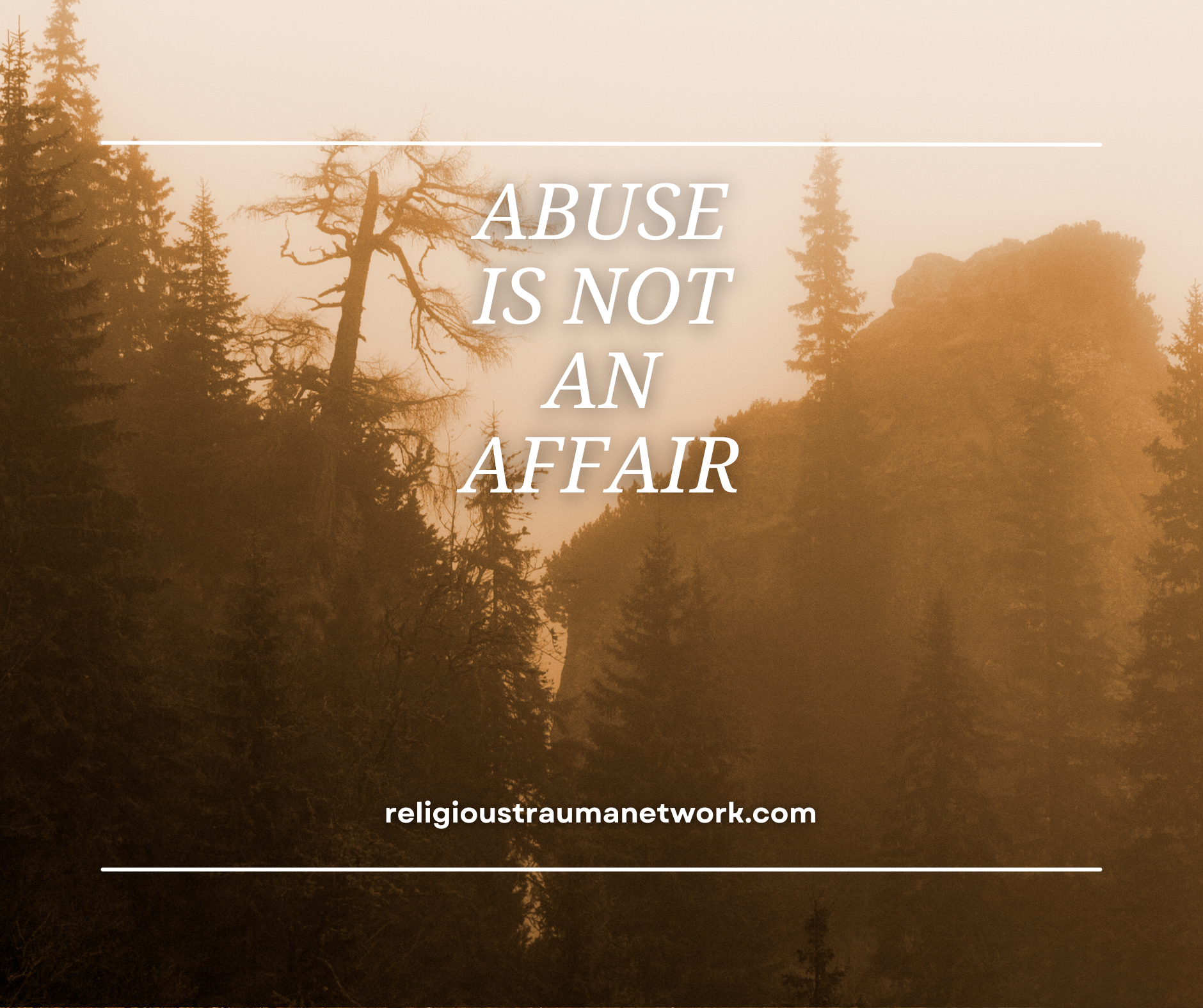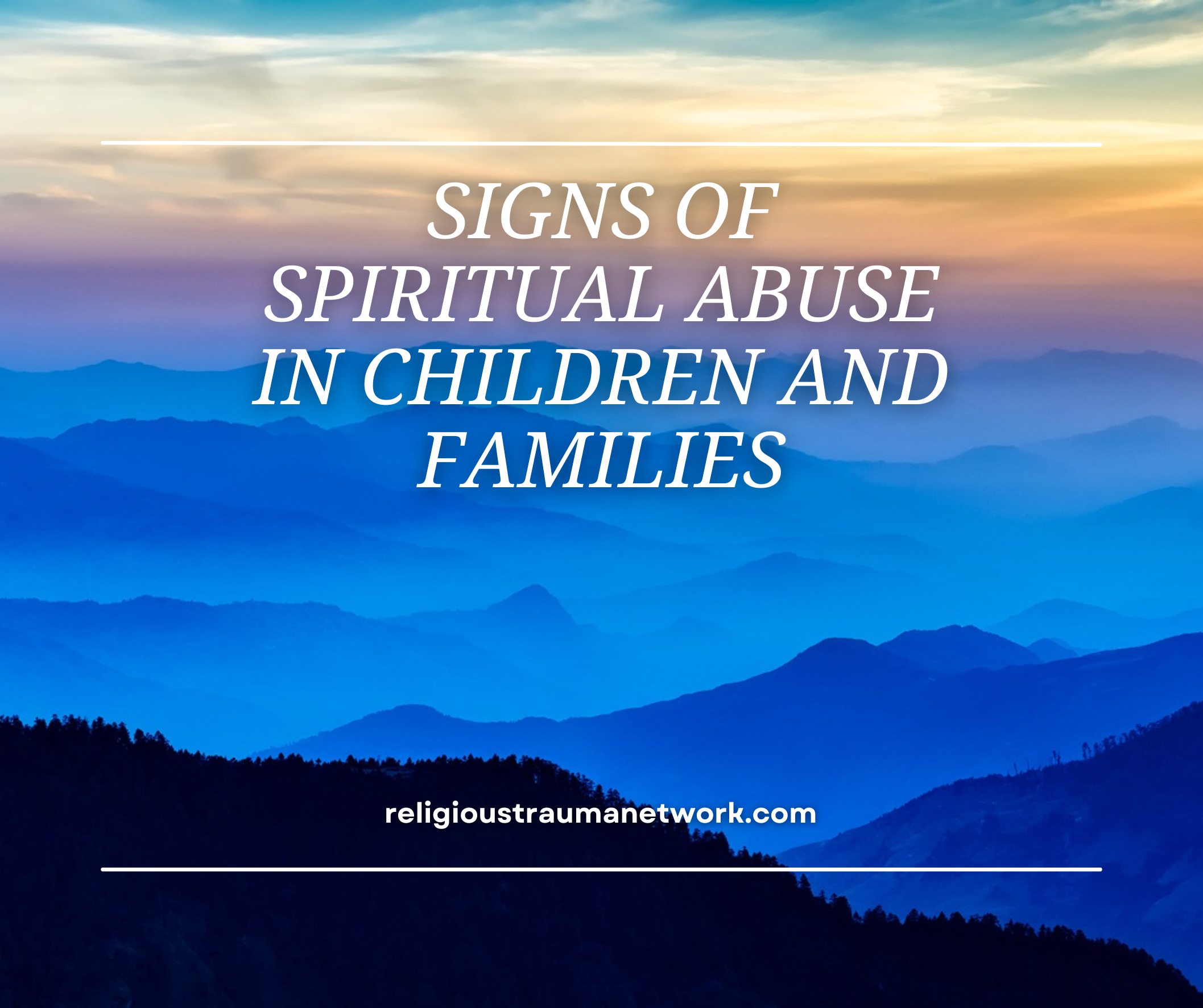
From Promise Ring to Stethoscope: Confronting Purity Culture as Patient or Healthcare Provider
As a survivor of purity culture and now as a Religious Trauma Advocate, I've come to recognize the profound impact this movement has had on individuals and communities. Purity culture, which gained prominence in the 1990s within evangelical Christian circles, emphasized sexual abstinence before marriage, traditional gender roles, and modesty. While often well-intentioned, this movement has left many grappling with long-lasting effects on their mental and sexual health.

Unpacking Religious Trauma: The Deep and Lasting Effects of Spiritual Abuse
There have been countless times in Christian spaces and churches when I found myself feeling completely dysregulated, yet I had no idea what was happening to me. In those moments, I experienced a mix of panic, isolation, and anger, but what hurt most was how others often viewed me as crazy or out of control. The goal of this post is to help you understand the profound effects of spiritual abuse and how religious trauma impacts both the mind and body. It's about shedding light on how these experiences can shape your emotional and physical responses, often in ways that are misunderstood or ignored.

Beyond Betrayal: Finding Hope After Hurt by Those We Trusted
There's a unique kind of pain that comes when someone you trusted—a faith leader, a spiritual mentor, or even a well-known Christian author or influencer—betrays your trust. This betrayal trauma cuts deep because these are the people we often look to for education, direction, insight or spiritual guidance. When they fail us, especially in harmful ways, the wounds can feel insurmountable. This post is for those navigating the aftermath of such betrayal, whether it's from a local pastor, a family member in spiritual leadership, or a prominent figure in your faith community.

Accepting Blog Post Submissions: April-June, 2025
We're excited to announce our upcoming guest blog post series focusing on Religious Trauma and healing through April, May, and June.
We invite submissions that explore the themes listed below while also adhering to our core values. Submissions which self-promote (such as one’s book, blog, business or podcast) will not be considered.

Abuse is Not an Affair: The Religious Trauma of Clergy Sexual Abuse of Adults
The language we use matters when discussing the sexual abuse of adults within religious contexts and is complicated because the legal language and laws around sexual abuse or assault vary from state to state. In some jurisdictions, sexual abuse tends to describe ongoing harm, while assault usually refers to one specific act.
The term sexual abuse is more often used when referring to abuse of victims under the age of eighteen. Sexual assault is generally used for one-time incidents involving adult victims. This leaves those adults who experienced ongoing abuse without language to describe what occurred and that vacuum is often filled with the word “affair” or the term “inappropriate relationship.”

When Fear Feels Like Faith: Mistaking Dysregulation for the Conviction of Sin
Evenings at camp followed a predictable rhythm. After a full day of activities, we’d gather in the chapel for the nightly service. The speaker, typically passionate and persuasive, delivered sermons heavy with shame and condemnation. The messages fixated on sin, our teenage behavior, fear of hell, and how unworthy we were—how much we had failed and how desperately we needed to make things right with God. Vivid depictions of hell, dire warnings about unconfessed sin, and graphic descriptions of Jesus' bloody death meant to take our place were common. I remember being terrified of dying in a car crash and not being "right with God," haunted by the stories the speakers shared.

January is Spiritual Abuse Awareness Month: David’s Story and Steps Toward Healing
January is Spiritual Abuse Awareness Month, and I want to share a deeply personal story from Christmas 2008—a moment that brought my experience of religious trauma into sharp focus. This story isn’t just about a triggering event; it’s about what happens inside someone who has endured spiritual abuse, how others misunderstand that response, and what we can do to foster healing for survivors.

The Shaming of Anger: How Christian parenting books harmed generations of children.
My husband and I were out thrifting when I spotted this book title: The Heart of Anger: Critical Help for the Prevention and Cure of Anger in Children. I did not recognize the author, Lou Priolo, but the Foreword was by John MacAruthur, Jr. On the front of the book was a child whose expression probably looked much like mine quite often as a child. She was standing in the center of what looked like a bullseye.

Signs of Spiritual Abuse in Children and Families
While it’s true spiritual abuse can have some physical features, it’s generally more subtle. Spiritual abuse first affects a person’s mind, moves into their core beliefs, and then informs their actions. Spiritual abuse intersects with psychological and emotional abuse in this way because spiritual abuse impacts mind, body and soul.
But how might a child experience spiritual abuse which results in religious trauma? It starts in the home.

Redefining the Holidays After Painful Experiences
I used to find the Christmas season incredibly challenging. Two profoundly traumatic and life-altering events occurred during this time in my childhood, leaving lasting scars. Adding to that, my fundamentalist Christian upbringing made navigating the holiday season as an adult both confusing and painful. When I began deconstructing much of the faith I grew up with, I often felt isolated and emotionally unsettled during Christmas. I felt out of place at family gatherings, unsure of how to be myself when I didn’t even know who I was.

Religious Trauma Recovery: Holiday Support
Are the holidays hard for you? You’re not alone.
For survivors of religious trauma and spiritual abuse, the holiday season can be an intensely triggering time. The ubiquitous religious imagery, music, and traditions can serve as painful reminders of past experiences within oppressive or abusive religious environments.
Family gatherings may force interactions with individuals who were complicit in or dismissive of the abuse or lived experience. The emphasis on faith, worship, and spiritual celebration can resurface complex emotions like grief, anger, and confusion about one's spiritual identity.

Religious Trauma: Navigating the Trifecta of Faith, Culture and Identity
In my role as an expert in culture and identity within the trauma space, my intent here is to explore three deeply intertwined factors—faith, culture, and identity create what I call a “trauma trifecta.” Each of these elements is foundational to personal identity, shaping how individuals experience, process, and heal from trauma. In my opinion, approaching religious trauma from this perspective, rather than as an isolated experience, allows us to recognize and understand the layered impacts of cultural and identity dynamics on a person’s spiritual journey and their psychological well-being.

4 Responses of Unhealed Trauma
I want to take a deeper dive into the world of trauma responses – those ways our minds and bodies react to past hurts, shaping our thoughts and actions long after the dust settles. Sometimes we think we’ve dealt with something, but realize patterns are still in place that may be signals something isn’t healed, healthy or whole.

Calming Your Nervous System as a Parent: While Processing Childhood Trauma
Parenting is such a wild ride—full of ups, downs, and everything in between. You’ve finally nailed the toddler and elementary years when, wham! You wake up one morning and now have a teenager in your home with those years full of their own challenges, developmental stages and complexities.
When you’re also carrying the weight of your own childhood trauma, parenting can often feel like an even bigger challenge. But here’s the thing: your trauma is not your child’s trauma. In fact, showing our kids how we learn, grow, and tackle tough stuff can be one of the best lessons we can give them.ll begins with an idea.

The Impact of Childhood Attachment on Faith and Parenting
A child needs to experience the unconditional love of their caregiver, for it is through this bond that they learn what it means to feel safe, valued, and seen. Healthy attachment between a child and their caregiver is foundational. It is in this space of security that a child’s nervous system can develop properly, learning to regulate emotions, manage stress, and form relationships built on trust and mutual respect.

Is Religious Trauma Impacting You?
Even over the phone, I could sense the physical reaction caused by the story that was being shared—a clear indication of trauma. It was a difficult story of rejection, betrayal, and abandonment—all within a religious context.
